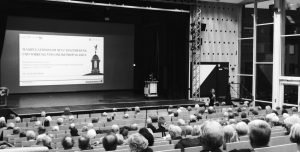Rudolf Augstein Foundation – re:claim public discourse!
On 22 February 2019, Dr. Lena Frischlich is invited to the symposium “re:claim public discourse!” in Hamburg organized by the Rudolf Augstein Foundation. At the conference, an expert audience with representatives of liberal democracy, consisting of journalists, academics, and NGO activists, will discuss how to deal with right-wing populist media strategies in the upcoming European elections in May 2019. The discussion will focus on what the media must pay attention to in the campaigns leading up to the European elections and what responsible journalism looks like. Dr. Lena Frischlich will present visions for journalism as a pillar of democratic resilience. The program and further information of the symposium can be read here.

